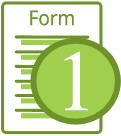Before you start your house hunting in earnest, the real estate professional with whom you are working likely will “pre-qualify” you to determine a price range you can afford. Pre-qualification is a necessary part of the home buying process that helps save you time and money. When questions arise, don’t be shy or withhold information about your income or credit status. Your realtor isn’t trying to pry. He or she must know all details related to your ability to obtain a mortgage. By candidly discussing your financial situation, you’ll give the agent the information necessary to show you homes you can afford. If you don’t disclose all important information, you are placing the realtor in the role of a tour guide, not someone who can help you find a home within your budget. You’ll wind up wasting your time and that of the agent.
A better alternative to pre-qualifying is to get pre-approved with a lending institution either before or during the house hunting process. Pre-approved buyers will not only know in advance how much home they can afford, but their pre-approved status gives them clout with sellers and real estate agents when the time comes to negotiate a sale price. In fact, many agents will not accept an offer unless it is accompanied by a pre-approval letter. Lastly, pre-approval speeds up the loan process after a purchase contract is signed and avoids any last-minute heartbreaks after a home is found.
The pre-approval process is relatively painless. Remember, the loan officer wants your business. That’s how they get paid. They should make you as comfortable as possible, but be prepared to be open and honest about your financial situation and provide complete information. Here are two important tips on getting loan approval: Do not submit fake letters of credit or gift letters, or make secret financial arrangements. If you plan on borrowing the down payment, you can only do so under specific circumstances; and you must disclose the loan (including the payment on that loan) as a liability to be considered in qualifying for the home payment. You must accurately list your income and assets, all debts and the approximate amounts you owe.
There are a wide variety of loans available including fixed rate, adjustable rate, bond-money low interest rate, low down payment, large down payment with very easy qualifying, second lien and investor financing. Use care to choose the right one for you.




